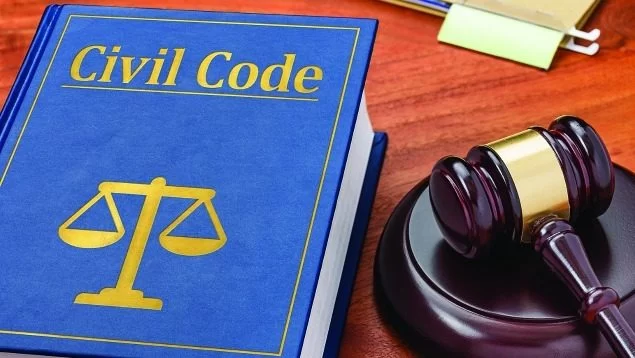- Understanding Family Disputes and Civil Law
- Methods for Resolving Family Disputes
- The Role of Mediation and Negotiation
- Legal Intervention in Family Conflicts
- Real Cases and Insights on Family Dispute Resolution
- Why Consult Fred Miller Lawyer for Family Disputes
1. Understanding Family Disputes and Civil Law
Family disputes are an emotional and often complex part of personal relationships, involving issues such as divorce, child custody, property division, and inheritance. Resolving these conflicts with the framework of civil law offers a structured approach that balances fairness and legal rights.
Civil law provides the rules and procedures to handle family disputes by focusing on negotiated settlements, judicial orders, or a combination of both. This legal system aims to protect individual interests while maintaining the possibility of reconciliation wherever possible.
1.1 Nature of Family Disputes
Unlike criminal cases, family disputes primarily concern private matters. They often arise from breakdowns in communication or differing expectations among family members. Understanding this context is vital to resolving conflicts effectively and humanely.
1.2 Civil Law Framework
The civil law framework in family matters includes statutes, court precedents, and procedural rules that govern how disputes are addressed legally. It sets clear guidelines on issues like property rights, parental responsibilities, and financial support.
2. Methods for Resolving Family Disputes
Resolving family disputes with civil law involves several approaches, each suitable for different circumstances depending on the nature and intensity of the conflict.
2.1 Negotiation Between Parties
Negotiation allows family members to discuss their issues openly and reach mutually acceptable agreements without formal court intervention. This method often preserves relationships by encouraging cooperation.
2.2 Mediation as a Collaborative Tool
Mediation involves a neutral third party who helps the disputing family members communicate more effectively and explore settlement options. It is less adversarial and typically faster and less costly than litigation.
2.3 Arbitration and Court Proceedings
If negotiation and mediation fail, arbitration or court litigation may be necessary. Arbitration involves a private decision-maker whose ruling is binding, while court proceedings result in a judge’s decision. Both processes provide legal finality but can be more formal and stressful.
3. The Role of Mediation and Negotiation
Family mediation stands out as a powerful tool in civil law for resolving disputes. It allows parties to retain control over the outcome and encourages communication.
3.1 Benefits of Mediation
Mediation can reduce hostility, save time and money, and lead to more durable agreements because the solutions are crafted by the parties themselves rather than imposed externally.
3.2 Challenges and Considerations
While mediation is beneficial, it requires willingness from all parties to engage honestly. In cases involving abuse or severe power imbalances, legal intervention may be a safer route.
4. Legal Intervention in Family Conflicts
Sometimes, family disputes escalate beyond what negotiation or mediation can handle. In these cases, civil law provides mechanisms for courts to intervene and make binding decisions.
4.1 Court Orders and Enforcement
Court orders can determine custody arrangements, division of assets, and spousal support. Enforcement mechanisms ensure that these decisions are respected, maintaining legal order.
4.2 Protecting Vulnerable Family Members
Civil law also safeguards the rights of children and vulnerable individuals, ensuring that their interests are prioritized during dispute resolution.
5. Real Cases and Insights on Family Dispute Resolution
Exploring real-life examples illustrates how civil law operates to resolve family disputes in practical terms.
5.1 Case Example: Child Custody Resolution Through Mediation
A divorced couple faced ongoing conflicts over child visitation schedules. Through mediation facilitated by a trained professional, they developed a flexible, workable plan that respected both parents’ involvement, preventing lengthy court battles.
5.2 Property Division Dispute
In another instance, siblings disputed the inheritance of a family property. Civil law processes helped them reach a fair division by combining negotiation and legal guidance, ultimately preserving family harmony.
5.3 When Legal Action Was Necessary
A family dispute involving allegations of financial abuse required court intervention. The judge’s order protected the victim’s rights and enforced restitution, demonstrating how civil law protects those at risk.
6. Why Consult Fred Miller Lawyer for Family Disputes
Resolving family disputes with civil law demands a delicate balance of legal expertise and empathy. Fred Miller Lawyer specializes in family law cases, offering tailored advice that respects the emotional complexity of each situation.
Whether navigating mediation, negotiation, or court proceedings, Fred Miller Lawyer ensures your rights are protected while seeking the most amicable and effective resolution. Their professional guidance can make the difference in turning a difficult family conflict into a manageable process.
For anyone facing family disputes, consulting Fred Miller Lawyer provides access to experienced, compassionate legal support designed to help you move forward.


 1611 pond rd
1611 pond rd ticket clinic bird road
ticket clinic bird road colorado immigration advocates
colorado immigration advocates scott skier attorney
scott skier attorney handy & handy attorneys at law
handy & handy attorneys at law ben kuehne attorney
ben kuehne attorney